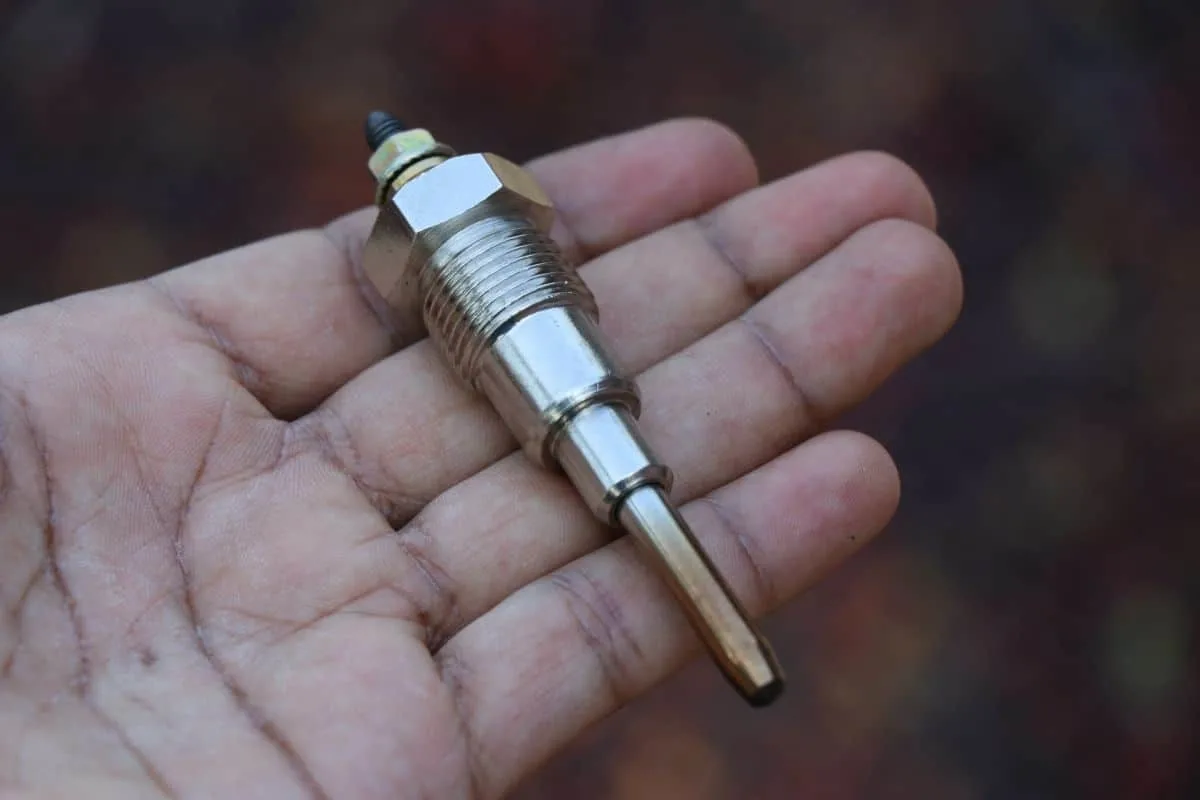As a diesel car owner, there are many more things that you should consider when it comes to car maintenance compared to gas-powered cars. One part that you should especially give special consideration to is the glow plug.
Most diesel engines require glow plugs because they provide the heat necessary for fuel to combust in the engine’s cylinders. Some specialized engines utilize adiabatic heating to ignite fuel in place of glow plugs, but these are not common in consumer vehicles.
Read on to learn more about glow plugs and the critical role they play in diesel vehicles!
What Is a Glow Plug?
It is well known that diesel engines require a bit more time before you can power them. This is due to the heat necessary to ignite it safely and effectively.
However, different elements may strip away the heat necessary during ignition. They include cold weather and the cylinder block and cylinder head, which absorb heat. This is where glow plugs come into play.
They are components that resemble spark plugs that play a key role in starting diesel engines. They do this by providing the necessary heat (750-850 degrees Celsius) to help the engine start. When this happens, the glow tube will begin glowing, hence the name glow plugs.
In addition to starting diesel engines, glow plugs also help keep it running and ensure it’s in peak functioning capacity.
Glow Plugs Vs. Spark Plugs
Although it’s common for people to confuse spark plugs and glow plugs, they are two different vehicle components. Spark plugs are used in gasoline vehicles.
Since gasoline engines do not require as much heat to ignite, spark plugs provide the necessary spark in the combustion chamber to ignite the fuel/air mixture.
Since cylinder compression requires more heat in a diesel engine, the heat a spark plug produces cannot help ignite it. This is why diesel engines use glow plugs instead.
Do All Diesel Engines Require a Glow Plug?
One of the biggest misconceptions surrounding diesel engines and glow plugs is that you can’t have one without the other. Whereas you will only find glow plugs in diesel engines, not all diesel engines require them.
Essentially, glow plugs are important for diesel vehicles that use an electric start. As such, there are many diesel vehicle models still in production today, especially for the military, that can actually run without glow plugs!
In such cases, the adiabatic compression of the fuel-air mixture produces the necessary heat for auto-ignition.

Can You Start a Diesel When a Glow Plug Fails?
Despite the key role glow plugs play in starting diesel engines, you can still start a modern car even if it fails. However, this cannot happen if there are computerized onboard restrictions.
Without such restrictions, you may be able to start the vehicle even if the engine is cold. As you attempt to start the car, the glow plug may not heat up completely but just enough to ignite the engine. However, it’s best not to make it a habit to start your vehicle this way.
If your attempt to start a diesel engine with a failing glow plug fails, you may end up flooding the engine. This is when too much fuel enters the cylinder, making it even more difficult to start the engine.
Is It Possible to Roll Start a Diesel?
The battery is the energy source that heats up glow plugs allowing them to heat up the cylinder. If you have a dead battery or it is completely discharged, a push start is almost impossible.
This is due to the high levels of heat required to get the engine going.
Is it Bad to Cold Start a Diesel?
Compared to starting a fuel engine, more consideration is necessary when starting diesel engines during low temperatures. Since gasoline is much more flammable than diesel and remains partly vapor during room temperature, igniting it is much easier!
Beyond this, cold weather is a challenge with diesel as it begins to gel at temperatures below 40℉. As a result, starting the vehicle becomes more difficult as engines rely on aerosolizing fuel during ignition.
Fortunately, with glow plugs and modern technologies, cold starting a diesel engine much easier than with older models.
Causes of Glow Plug Failure
Since glow plugs provide the additional heat necessary for the combustion chamber to ignite, starting a diesel vehicle becomes difficult when they begin to fail. If the temperature outside is favorable, you may achieve ignition after a few attempts.
However, when temperatures are low, achieving ignition with a faulty glow plug is unlikely. As such, once you begin noticing some trouble with starting your diesel vehicle, have your glow plugs tested.
Though there may be varying causes to glow plug failure, the common ones are high voltages reaching the plug and excessive heat.
Other causes of glow plug failure include:
- Using the wrong glow plugs for your engine
- Long power supply due to stuck relay
- Damaged pistons
- Broken valves
- Erosion of the glow plugs due to injector drip
If all glow plugs fail at the same time, it’s not due to wear and tear. Therefore, you must identify the specific cause to ensure it does not keep happening.
Signs of Glow Plug Failure
Should your glow plugs begin to fail, it is essential to have them replaced. Otherwise, you may soon find yourself stranded because you cannot start the vehicle. Along with the check engine light on your dashboard, some of the other signs of faulty glow plugs include:
#1 Difficulty Starting the Engine
The most common sign of failing glow plugs is difficulty starting the engine. Due to the damage or other factors, glow plugs are unable to heat up to the levels necessary to ignite the combustion chamber. This is especially so during cold weather. If there are no problems with the fuel or battery, have your glow plugs checked.
#2 Rough Idling
In addition to difficulty starting the engine, a subtle sign of glow plug failure is rough idling. When this happens, you will notice white smoke coming out of the exhaust for several minutes before the engine starts.
#3 Engine Misfiring
For a diesel engine to combust, a high compression rate is necessary, and the fuel needs to be injected in the right amounts and at the correct time. Along with fuel quality and injection, compression problems may cause the engine to misfire.
During ignition, the heat from glow plugs and compression pressure heats up the combustion chamber. If the glow plugs are faulty, the heat necessary for combustion will not be achieved, causing the engine to misfire.
#4 Increasing Fuel Consumption
Although fuel quality and temperature are what commonly determine fuel efficiency, glow plug performance may also affect it.
To reduce the freezing point of diesel, it may be mixed with some additives during the cold months. When this happens, fuel efficiency will reduce due to the lower energy content. You should therefore adjust the engine operating temperature to ensure it is completely burnt, thus increasing your mileage.
If your glow plugs are faulty, achieving the necessary temperature for combustion will be challenging. This then affects the performance of the engine, further reducing fuel efficiency.
Some of the other symptoms of failing glow plugs include:
- Loss of overall power
- Reduced acceleration
How often Should You Replace Glow Plugs?
Undoubtedly, glow plug failure is one of the biggest concerns for diesel vehicle drivers. Fortunately, they are cost-effective to replace and are long-lasting. If glow plugs become faulty naturally due to gradual wear and tear, they should last up to 100,000 miles.
However, that’s not always the case, and you should always be vigilant for glow plug failure. The longer you delay replacing them, the more problematic it will be.
For instance, if your vehicle has a four-cylinder engine, it will be difficult to start it with one damaged glow plug. If two or three are damaged, starting it becomes almost impossible.
Always Carry a Spare Set of Glow Plugs
Since there are many reasons the glow plugs may fail, they may not do so one at a time, as would be the case with wear and tear. As such, you face the risk of suddenly not being able to start your car.
This is why it is essential to have a spare set of glow plugs if self-service is necessary.
